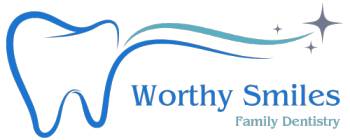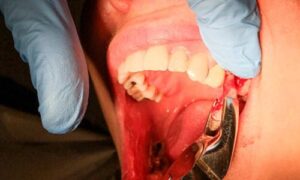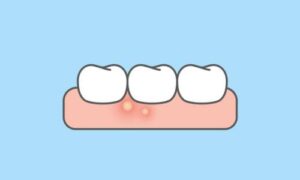Are you looking to improve your smile or fix a dental issue? There are different dental procedures available to you. Each system has its Pros and Cons, and it’s essential to understand them before deciding. This article’ll examine the pros and cons of different dental procedures.
Introduction
Your smile is one of the first things people notice about you. A healthy, beautiful smile can improve your confidence, enhance your appearance, and positively impact your personal and professional life. However, not everyone is born with perfect teeth. Various factors, such as genetics, poor oral hygiene, and accidents, can cause dental problems. Fortunately, modern dentistry offers many solutions to fix dental issues and improve your smile.
Before undergoing, understanding the Pros and Cons of different dental procedures is crucial. This article will explore the pros and cons of other dental procedures to help you make an informed decision. You should also consult your dentist to determine the correct method based on your oral health and needs.
Teeth Whitening
Pros
Teeth whitening is a popular dental procedure that can dramatically improve the appearance of your smile. The treatment uses special chemicals to remove stains and discoloration from your teeth, leaving them whiter and brighter.
One of the main benefits of teeth whitening is that it’s a non-invasive procedure. It doesn’t require drilling or removal of tooth structure, making it a safe and painless option. Teeth whitening is also relatively affordable compared to other cosmetic dental procedures.
Cons
While teeth whitening is generally safe, there are some potential drawbacks. The treatment can cause tooth sensitivity, especially if you have pre-existing dental issues. Overusing whitening products can also damage your tooth enamel and cause gum irritation. Additionally, teeth whitening isn’t suitable for everyone, especially those with certain dental conditions.
According to the National Health Center, Percent of adults aged 18 and over with a dental visit in the past year: is 63.0% (2022)
Dental Implants
Pros
Dental implants are a popular solution for replacing missing or damaged teeth. The procedure involves surgically placing a titanium post into the jawbone, which acts as an artificial tooth root. A crown is then attached to the post, creating a natural-looking and functioning tooth.
One of the primary benefits of dental implants is their durability. Implants are more comfortable and stable than tooth replacement options, such as dentures. Proper care can last a lifetime, making them a long-term investment in oral health.
Cons
While dental implants are an excellent solution for tooth replacement, they do have some potential drawbacks. The procedure is invasive and requires surgery, which can be uncomfortable for some patients. It’s also a time-consuming process that requires several visits to the dentist over several months. Finally, dental implants can be expensive compared to other tooth replacement options.
Dental Veneers
Pros
Dental veneers are thin shells of porcelain or composite resin bonded to the front of your teeth. They’re an excellent solution for various dental issues, including chipped, stained, or misaligned teeth. Veneers can also be used to close gaps between teeth and improve the appearance of your smile.
One of the primary benefits of dental veneers is their versatility. They can address many cosmetic dental issues in a single treatment, making them a convenient option. Surfaces are also durable and long-lasting, with proper care.
Cons
While dental veneers can improve the appearance of your smile, there are some potential drawbacks to consider. The procedure requires removing a small amount of tooth enamel, which is irreversible. This means veneers are a permanent solution and must be replaced when worn out. Veneers can also be expensive compared to other tooth restoration options. Additionally, some patients may experience tooth sensitivity after getting veneers, especially if the tooth enamel removal is extensive.
Dental Crowns
Pros
Dental crowns, or caps, are custom-made tooth coverings that restore damaged teeth’ shape, size, and strength. They are often recommended for teeth with extensive decay, cracks, or after root canal treatment.
One of the significant advantages of dental crowns is their durability. They provide long-term protection to weakened teeth and can withstand the forces of biting and chewing. Crowns also offer excellent aesthetic results, as they can match the color and shape of your natural teeth.
Cons
Despite their many benefits, dental crowns also have some considerations to consider. Placing a crown involves removing a significant portion of the natural tooth structure. This irreversible alteration can weaken the tooth in the long term. Additionally, the cost of dental crowns can be higher compared to other restorative options.
Orthodontic Treatment
Pros
Orthodontic treatment, commonly known as braces, is used to correct misaligned teeth and bite issues. This dental procedure involves props, wires, and other appliances to shift the teeth into their proper positions gradually.
One of the primary advantages of orthodontic treatment is the significant improvement it can bring to your smile and oral health. Straighter teeth are easier to clean, reducing the risk of tooth decay and gum disease. Additionally, properly aligned teeth can improve your bite and chewing efficiency.
Cons
Orthodontic treatment requires a considerable time commitment, often several months or years. Patients must regularly visit the orthodontist for adjustments and follow a strict oral hygiene routine during this time. Braces can also cause temporary discomfort and difficulty with eating certain foods.
Dental Bridges
Pros
Dental bridges replace missing teeth by anchoring artificial teeth to adjacent natural teeth or dental implants. They offer a non-removable and stable solution for restoring your smile and maintaining proper dental function.
One of the advantages of dental bridges is their ability to fill the gap left by a missing tooth, preventing the remaining teeth from shifting out of position. Bridges also provide an aesthetically pleasing result, as they can be customized to blend seamlessly with your natural teeth.
Cons
While dental bridges offer many benefits, they have a few considerations to consider. The procedure requires altering the adjacent teeth to support the bridge, which can weaken them. The longevity of a dental bridge also depends on the health and stability of the supporting teeth or implants. Additionally, the cost of dental bridges can vary depending on the materials used and the case’s complexity.
Root Canal Treatment
Pros
Root canal treatment, or endodontic therapy, is performed to save a severely decayed or infected tooth. The procedure involves removing the infected pulp from the tooth’s inner chamber, cleaning and disinfecting it, and sealing it to prevent further infection.
The main advantage of root canal treatment is preserving your natural tooth. By eliminating the infection and saving the tooth, you avoid the need for tooth extraction and potential tooth replacement options. Root canal-treated teeth can function normally and last a lifetime with proper care.
Cons
While root canal treatment is highly successful, some cons exist. The procedure can be time-consuming and may require multiple visits to the dentist. After the treatment, the tooth may become more brittle and prone to fractures, necessitating the placement of a dental crown for added protection. In rare cases, root canal-treated teeth may experience reinfection or require retreatment.














